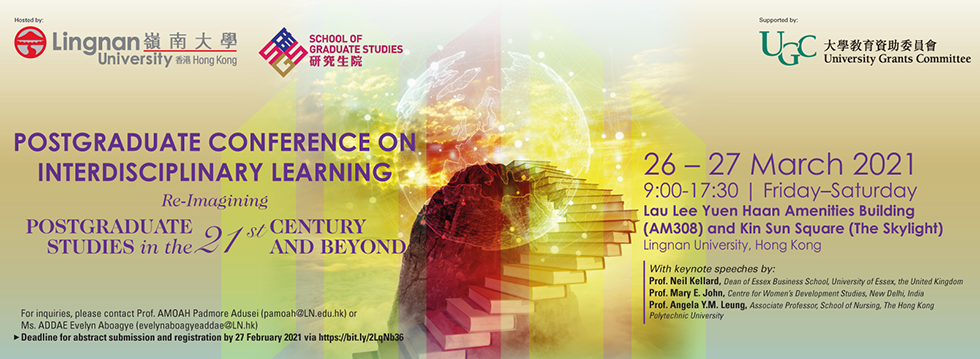
Intergenerational learning for active ageing: Chinese senior immigrants’ online learning during the COVID-19
Start Date
26-3-2021 11:45 AM
End Date
26-3-2021 12:00 PM
Description
The COVID-19 has greatly affected the immigrant community in terms of racial and ethnic inequalities, border closures, travel restrictions, service processing delays, and/or mental health problems (Clark, et. al. 2020). During the pandemic, older immigrants experienced not only a high risk for severe illness, but also long-term and short-term uncertainties in both their families and the local society. The older immigrants could not receive adequate health support and social services, and lifelong learning opportunities. The purpose of this paper is to explore the relationship between intergenerational learning and ageing in immigrant communities. Through an examination of how Chinese senior immigrants learn intergenerationally in Canada during the COVID-19, this paper argues that intergenerational learning could be seen as a pathway for active ageing (WHO, 2002), which helps to enhance senior immigrants’ health and wellbeing, civic engagement, and social security.
Based on a self-initiated intergenerational learning project by a Chinese senior immigrants’ association in Toronto, Canada, this study examined how older immigrants practiced intergenerational learning with immigrant youth through a variety of online teaching and learning activities, including English language learning, arts learning and other online collaborative learning activities. The study interviews 16 Chinese senior immigrants and 10 immigrant youth participating in the intergenerational activities in Toronto. Results showed that online intergenerational learning served as a lifelong learning process for active ageing, and played important roles in 1) intergenerational knowledge transfer; 2) cross-cultural communications; and 3) online civic engagement and community development.
Recommended Citation
Zhu, Y., & Zhang, W. (2021, March). Intergenerational learning for active ageing: Chinese senior immigrants’ online learning during the COVID-19. Presented at the Postgraduate Conference on Interdisciplinary Learning: Re-Imagining Postgraduate Studies in the 21st Century and Beyond. Lingnan University, Hong Kong.
Intergenerational learning for active ageing: Chinese senior immigrants’ online learning during the COVID-19
The COVID-19 has greatly affected the immigrant community in terms of racial and ethnic inequalities, border closures, travel restrictions, service processing delays, and/or mental health problems (Clark, et. al. 2020). During the pandemic, older immigrants experienced not only a high risk for severe illness, but also long-term and short-term uncertainties in both their families and the local society. The older immigrants could not receive adequate health support and social services, and lifelong learning opportunities. The purpose of this paper is to explore the relationship between intergenerational learning and ageing in immigrant communities. Through an examination of how Chinese senior immigrants learn intergenerationally in Canada during the COVID-19, this paper argues that intergenerational learning could be seen as a pathway for active ageing (WHO, 2002), which helps to enhance senior immigrants’ health and wellbeing, civic engagement, and social security.
Based on a self-initiated intergenerational learning project by a Chinese senior immigrants’ association in Toronto, Canada, this study examined how older immigrants practiced intergenerational learning with immigrant youth through a variety of online teaching and learning activities, including English language learning, arts learning and other online collaborative learning activities. The study interviews 16 Chinese senior immigrants and 10 immigrant youth participating in the intergenerational activities in Toronto. Results showed that online intergenerational learning served as a lifelong learning process for active ageing, and played important roles in 1) intergenerational knowledge transfer; 2) cross-cultural communications; and 3) online civic engagement and community development.

